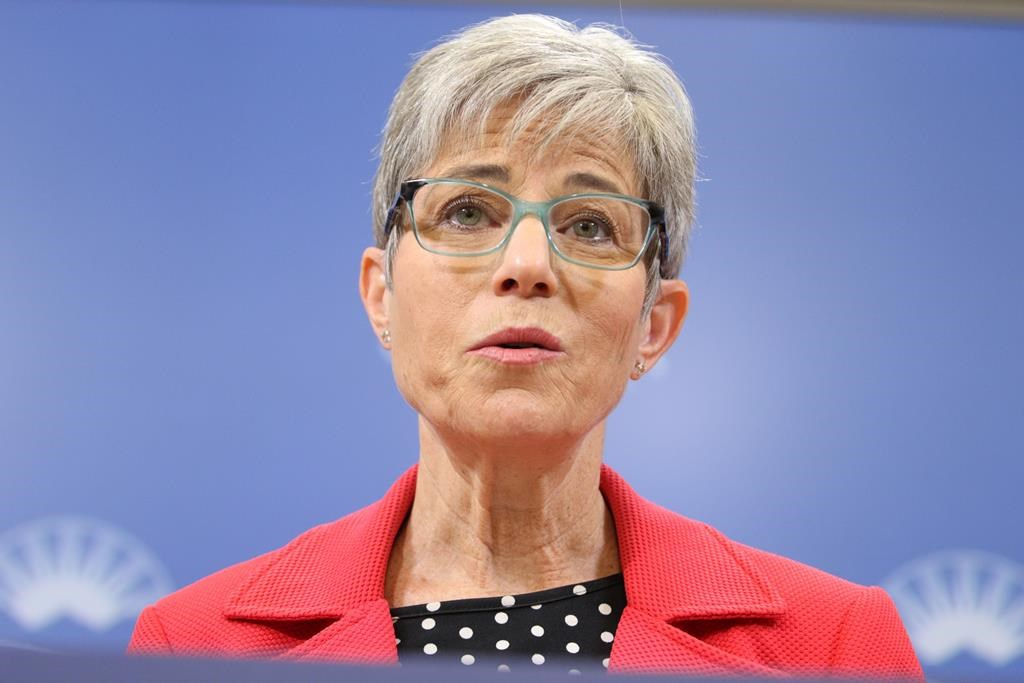Support strong Canadian climate journalism for 2025
B.C. Finance Minister Selina Robinson says making sure communities have the resources they need to deal with the effects of climate change will be a focal point of her budget on Tuesday.
The province was battered by forces driven by climate change over the past year, including deadly heat waves, wildfires and storms that caused major flooding across southern B.C., as well as dealing with the COVID−19 pandemic and an opioid overdose crisis, she said.
"We’ve been through a lot together and I’m not just talking about the dual health emergencies that we continue to face," Robinson said at a news conference. "The past few years have clearly demonstrated the destructive effects of climate change."
Heat waves that resulted in hundreds of deaths last summer, wildfires that swept through Lytton and Monte Lake, and floods and mudslides that devastated farms in the Fraser Valley and crippled highway and rail transportation routes to the Interior are clear signals climate change has arrived, she said.
"And as government, we are committed to ensure people and communities have the resources that they need to face this challenge," said Robinson.
She said the government plans to introduce a year−round B.C. Wildfire Service dedicated to full−time fire prevention, preparedness, response and recovery.
"This is a fundamental change, a real shift that will deliver B.C. Wildfire Service from a reactive to a proactive approach by moving to a year−round workforce," Robinson said.
The minister did not directly address estimates on the financial cost of last fall’s floods and mudslides in southern B.C. other than to say the details will be in the budget.
"We need to keep people and communities safe, and that’s what you are seeing, and you’ll see more of that tomorrow (Tuesday)," Robinson said.
In November, Robinson forecast a budget deficit of $1.7 billion for the 2021−22 fiscal year, down from the original projection of $9.7 billion last February.
This report by The Canadian Press was first published Feb. 21, 2022.




Comments